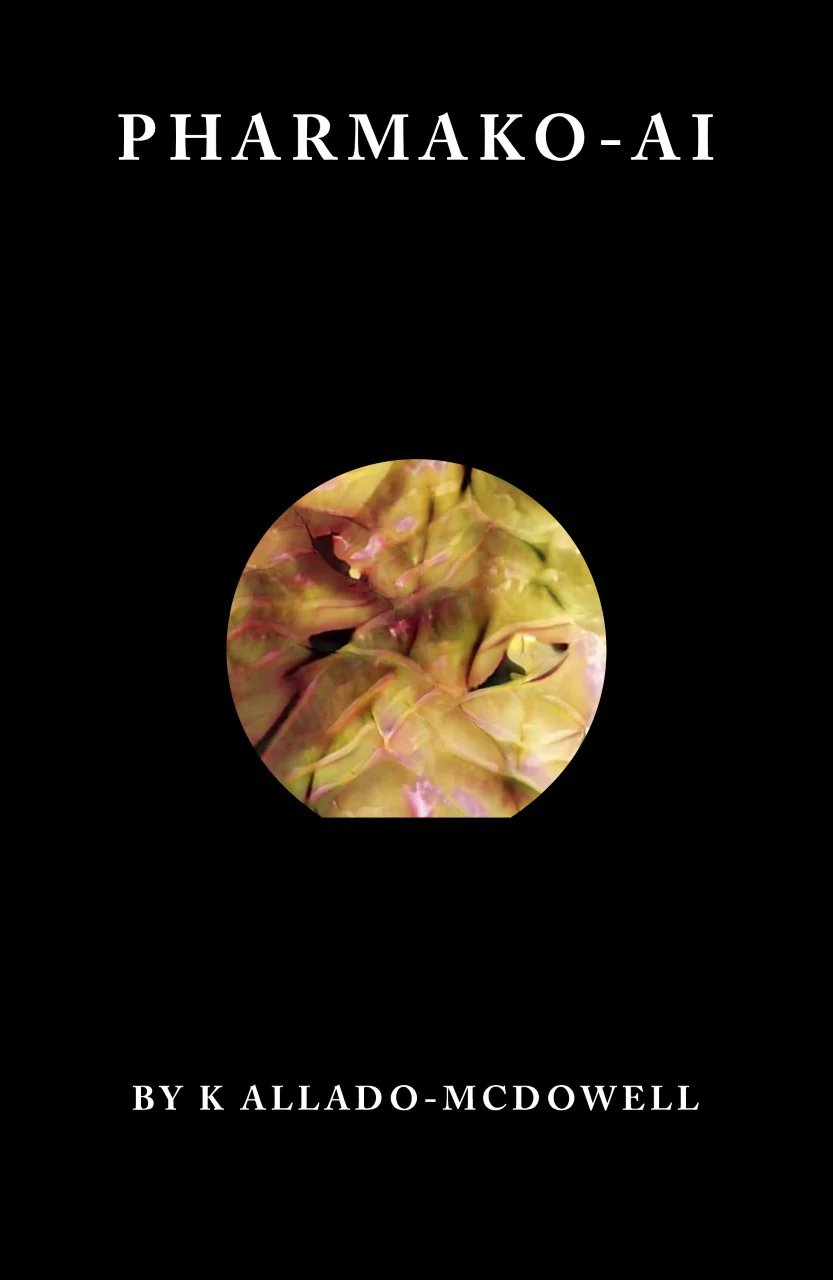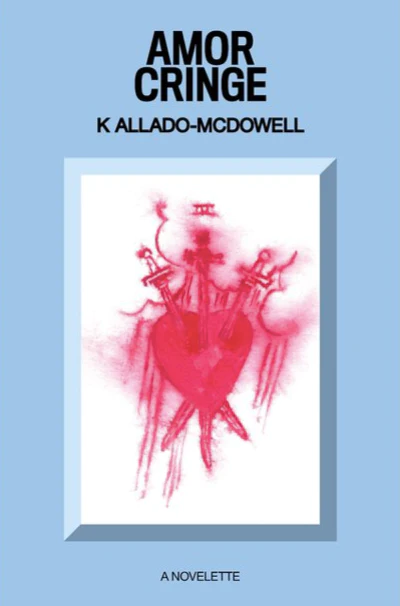30-Second Book Review No.2: K Allado-McDowell’s Amor Cringe and Pharmako-AI
 Wednesday, March 20, 2024 at 12:08PM
Wednesday, March 20, 2024 at 12:08PM 30-Second Book Review.
No.2
K Allado-McDowell’s Amor Cringe (Los Angelese: Deluge Books 2022) and Pharmako-AI (London: Ignota Books 2020).
K Allado-McDowell’s pioneering experimental novel Amor Cringe is ‘half traditionally-written and half AI-generated’ (2022), and is published on an all rights reserved basis by Deluge Books.


The same applies to Allado-McDowell’s collection Pharmako-AI, which bills itself as the ‘first book to be co-written with the language AI GPT-3. It is published all rights reserved by Ignota Books, with serif being used to identify those parts written by Allado-McDowell, and serif font the inputs Allado-McDowell gave the model, the rest being written by GPT-3. This ensures the two co-authors – human and machine – remain ontologically distinct. In not being authored primarily by nonhumans, it also ensures both books are copyrightable.
But what if, as Allado-McDowell suggested recently at the Cybernetic Serendipty: Towards AI event in London, art in the 21st century will weave together human and machine intelligences? How will this impact those humanist notions of authorship, attribution and copyright Allado-McDowell seems so anxious to maintain?
 Gary Hall | Comments Off |
Gary Hall | Comments Off | 





